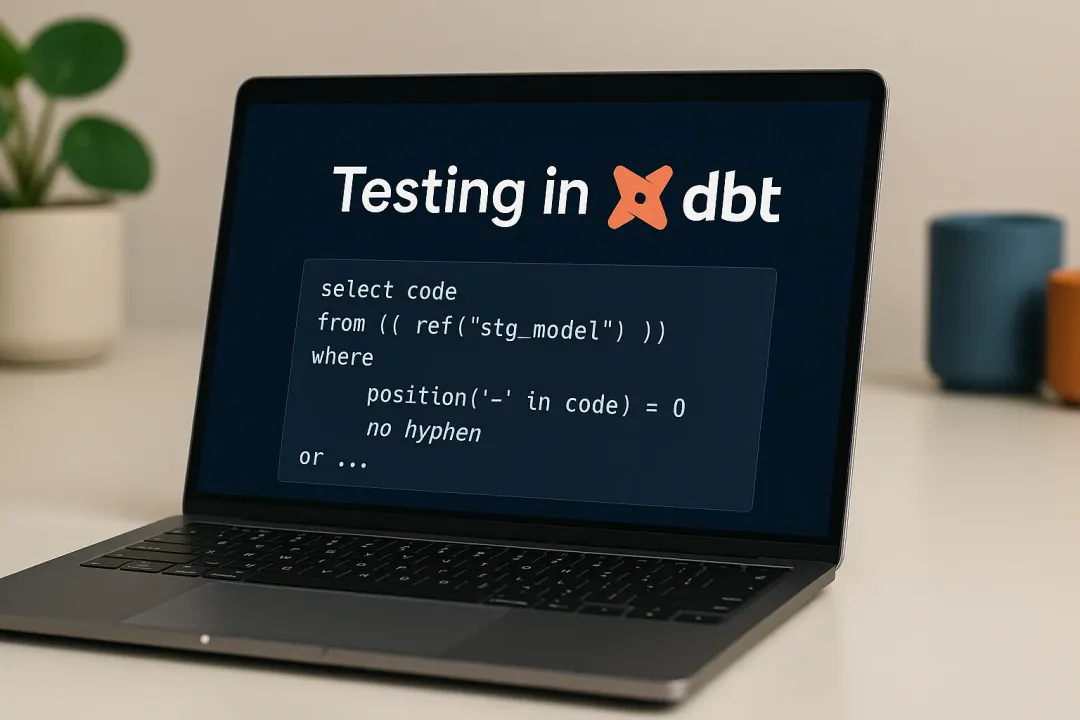
Maria Chojnowska
3 August 2023, 7 min read

What's inside
- Understanding Data Privacy and Security
- Protecting Sensitive Data
- Emerging Technologies and Data Privacy
- Legal and Ethical Considerations
- Conclusion
Organizations collect and store massive amounts of personal and sensitive information in today's data-driven world. This includes everything from customer data to confidential business information. As a result, ensuring data privacy and security has become more critical than ever.
- Read our piece about Data-driven Organization. The Intelligent Approach to Data and Why It Matters?
Data privacy protects individuals' personal information, including their identity, contact details, and financial information. On the other hand, data security protects all personal or confidential business information from unauthorized access or theft.
In a data-driven organization, data privacy and security are of paramount importance. The failure to adequately protect sensitive data can lead to severe consequences, including reputational damage, legal action, and financial losses. In this blog post, we will explore the importance of data privacy and security in a data-driven organization and the steps you can take to ensure you are adequately protected.
- Read if you are interested in Maximizing the Potential of your Data.
Understanding Data Privacy and Security
Data privacy and security are critical components of any data-driven organization. In this section, we will provide an overview of the regulations and compliance standards you must adhere to, the different types of sensitive data, the risks and consequences of data breaches, and the role employees play in protecting sensitive data.
Regulations and Compliance Standards
Data privacy and security regulations have been implemented to protect individuals' personal and sensitive data. Examples of these regulations include the General Data Protection Regulation (GDPR) and the California Consumer Privacy Act (CCPA). Compliance with these regulations is not only important for ethical reasons and for avoiding penalties and legal consequences.
Types of Sensitive Data
Sensitive data refers to any information that, if exposed or stolen, could cause harm to an individual or organization. This includes personally identifiable information (PII), financial information, health information, and confidential business information. In a data-driven organization, this data is often collected and processed, making it a prime target for cybercriminals.
- You may find information about securing your website in this article.
Risks and Consequences of Data Breaches
Data breaches can have severe consequences for an organization, including financial loss, legal repercussions, and reputational damage. Cybercriminals can use stolen data for identity theft, financial fraud, and other malicious activities. Therefore, organizations must have robust data privacy and security measures to protect sensitive data.
The Role of Employees in Protecting Sensitive Data
Employees play a vital role in protecting sensitive data. They are often the first defense against cyber threats and must know the best privacy and security practices. You must provide your employees with regular training and education to ensure they can identify and respond to potential threats to sensitive data.
Protecting Sensitive Data
In a data-driven world, protecting sensitive data is critical for any organization. This section will explore the best practices for data privacy and security practices in a data-driven organization.
Implementing a data privacy and security program is essential for ensuring that all sensitive information is secure. This program should include regular risk assessments, policies and procedures, and incident response plans. Employees should be trained on these policies and procedures to know their responsibilities in protecting sensitive data.
Security measures for data in transit and at rest are also crucial for privacy and security. Encryption and access controls are just some examples of security measures that can be implemented to protect sensitive data.
Additionally, regular data backups should be performed, and data recovery strategies should be in place in case of any data loss or breach.
Cybersecurity awareness and training for employees is also critical. Employees should be trained to identify and avoid phishing scams, use strong passwords, and recognize potential security threats. By ensuring that employees are aware of the risks and trained to handle them, your organization can significantly reduce the risk of a data breach.
Emerging Technologies and Data Privacy
As technology evolves, it brings new challenges and opportunities for data privacy and security. In this section, we'll explore some of the emerging technologies and their impact on data privacy and security in a data-driven organization.
Overview
Emerging technologies such as artificial intelligence (AI), machine learning (ML), cloud computing, and the Internet of Things (IoT) have become increasingly popular in recent years. These technologies have the potential to revolutionize how businesses operate, but they also bring new challenges regarding data privacy and security.
Challenges and Opportunities of AI and Machine Learning
AI and ML can potentially transform how businesses handle sensitive data. However, their use also raises concerns about data privacy and security. For example, AI algorithms may unintentionally reveal sensitive data, and malicious actors could use AI to launch sophisticated attacks.
AI and ML can offer significant data privacy and security opportunities despite these challenges. By automating specific tasks and detecting patterns in data, businesses can identify and mitigate potential security risks more quickly and efficiently.
Data Privacy and Security Considerations for Cloud Computing and IoT
Cloud computing and IoT have also become essential components of many data-driven organizations. However, these technologies also bring new risks regarding data privacy and security. For example, data stored in the cloud may be more vulnerable to cyberattacks, and IoT devices may unintentionally collect and transmit sensitive data.
To mitigate these risks, businesses need to implement strong data privacy and security measures when using cloud computing and IoT devices. These measures may include data encryption, access controls, and monitoring for suspicious activity.
Best Practices for Securing Sensitive Data in Emerging Technologies
To protect sensitive data in emerging technologies, businesses should adopt a proactive data privacy and security approach. This may include conducting regular risk assessments, implementing data classification and handling procedures, and ensuring employees are trained on the best data privacy and security practices.
By taking these steps, businesses can ensure that their data remains secure as they adopt new technologies and continue to drive innovation in their industries.
Legal and Ethical Considerations
In addition to compliance with regulations, data-driven organizations must consider legal and ethical aspects. This section will cover some key legal and ethical considerations in this area.
Privacy policies and user agreements are crucial to data privacy and security in any organization. Privacy policies outline the types of data collected, how it will be used, and how it will be protected. User agreements establish the terms and conditions of use for any system or application that collects and processes user data. Data-driven organizations must regularly review and update their privacy policies and user agreements to ensure they are accurate, transparent, and compliant with legal requirements.
Legal frameworks for data protection and privacy vary by country and region. For example, in the United States, the General Data Protection Regulation (GDPR) and the California Consumer Privacy Act (CCPA) are essential legal frameworks regulating data privacy and security. Failure to comply with these regulations can result in significant fines and legal penalties. Data-driven organizations must stay up-to-date on the legal requirements in their region and ensure that their data privacy and security policies align with these regulations.
Ethical considerations are another critical aspect of data privacy and security. Data-driven organizations must consider the ethical implications of data collection and use. For example, collecting data without user consent or using data to discriminate against individuals is unethical and can lead to reputational damage and legal consequences. Data-driven organizations must prioritize ethical practices and ensure that their data collection and use align with their values and stakeholders' expectations.
Conclusion
In conclusion, data privacy and security are crucial aspects of any data-driven organization. Failure to protect sensitive data can lead to legal and financial consequences, damage to reputation, and loss of trust from customers and stakeholders. To ensure that your organization is protected, it's essential to implement best practices for data privacy and security, including regular cybersecurity training for employees, a data privacy and security program, and a backup and recovery strategy.
As emerging technologies continue to shape the data landscape, it's essential to remain vigilant and stay ahead of potential threats. By implementing best practices and staying up-to-date with the latest regulations and compliance standards, you can protect your organization from the negative impacts of data breaches and ensure the privacy and security of your customers' data.
As a call to action, we urge you to prioritize data privacy and security in your organizations. Protecting sensitive data should be a top priority whether you're a small startup or a large corporation. By taking proactive steps to safeguard your data, you can build trust with your customers and create a foundation for long-term success.


